Losing weight isn’t about starving yourself or spending hours in the gym. It’s about making smart, sustainable choices that fit your lifestyle. Small changes add up, and consistency is the key to success.
If you’ve ever felt stuck in your weight loss journey, you’re not alone. With so much conflicting advice out there, it’s easy to feel overwhelmed. The good news? You don’t need extreme diets or endless workouts—just a few effective strategies that actually work.
1. Prioritize Protein in Every Meal
Eating enough protein can make a huge difference in how full and satisfied you feel. It helps control cravings and boosts metabolism, making it easier to lose weight without feeling deprived.
A meal rich in lean protein keeps you energized and prevents overeating later in the day. Try adding chicken, eggs, Greek yogurt, or plant-based sources like lentils and tofu to every meal.
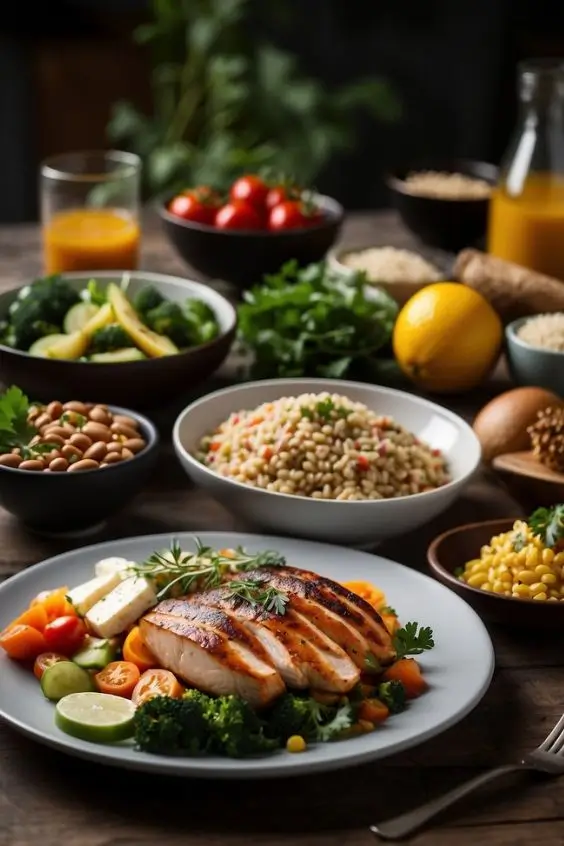
2. Stop Drinking Your Calories
Sugary drinks might seem harmless, but they can add hundreds of extra calories without filling you up. A single soda or sweetened coffee can undo all your hard work without you even realizing it.
Switching to water, black coffee, or unsweetened tea helps cut down on unnecessary sugar. If plain water feels boring, add a slice of lemon or fresh mint to keep things interesting.
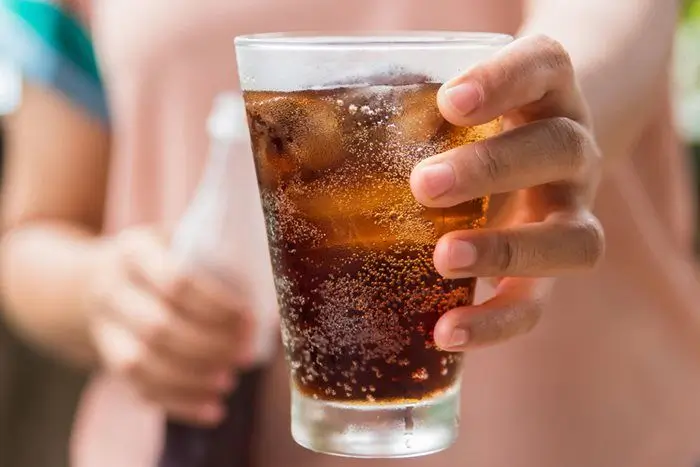
3. Focus on Whole, Unprocessed Foods
Processed foods are loaded with added sugars, unhealthy fats, and preservatives that make weight loss harder. They spike your blood sugar and leave you craving more, creating a never-ending cycle of hunger.
Filling your plate with lean proteins, healthy fats, fiber-rich vegetables, and complex carbs helps you feel fuller for longer. Choosing real, nutrient-dense foods makes a huge difference in your energy and overall health.
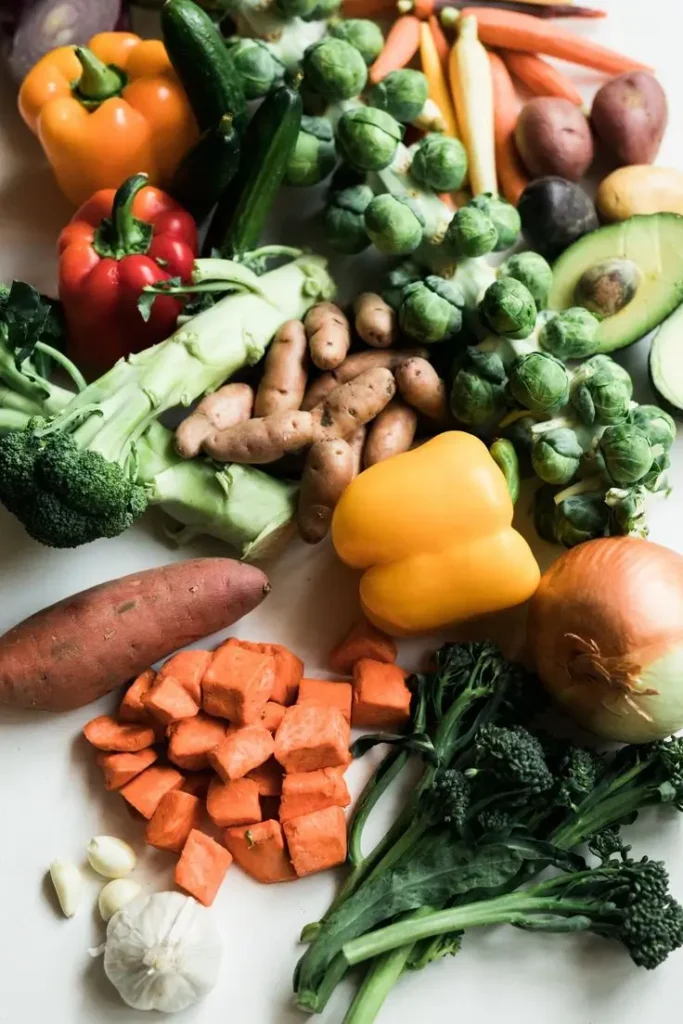
4. Don’t Fear Healthy Fats
Many people believe that eating fat leads to weight gain, but healthy fats actually help with weight loss. They keep you full, balance your hormones, and support your body’s natural fat-burning process.
Incorporating avocados, olive oil, nuts, and seeds into your diet can make meals more satisfying. Just be mindful of portions, as fats are calorie-dense, and a little goes a long way.
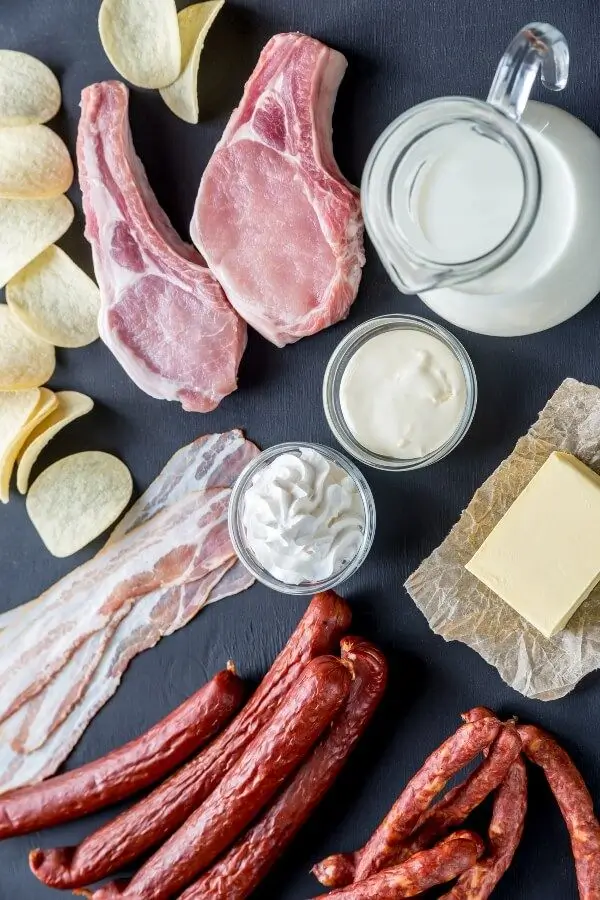
5. Practice Mindful Eating
Eating while distracted often leads to overeating and unnecessary snacking. When you’re focused on your food, you naturally eat less and enjoy your meals more.
Try slowing down and chewing your food properly to help your body recognize when it’s full. Paying attention to each bite allows you to savor flavors and avoid eating out of boredom.

6. Get Enough Sleep
Not getting enough sleep can make you hungrier and more likely to crave unhealthy foods. When you’re tired, your body produces more ghrelin, the hunger hormone, making it harder to resist junk food.
Prioritizing 7–9 hours of quality sleep helps regulate your appetite and improves your overall energy levels. A consistent bedtime and avoiding screens before bed can make a big difference.

7. Stay Hydrated
Many people mistake thirst for hunger, leading to unnecessary snacking. Drinking enough water throughout the day helps keep your body running smoothly and prevents cravings.
Starting your day with a glass of water and drinking before meals can help control portion sizes. Keeping a reusable water bottle nearby makes it easier to stay on track.

8. Move More Throughout the Day
You don’t need intense workouts to burn calories—small movements add up throughout the day. Simple changes like standing more often and taking short walks can make a big impact.
Using the stairs instead of the elevator or stretching during work breaks increases your daily activity. Even walking while talking on the phone helps keep your body in motion.

9. Lift Weights for Fat Loss
Strength training isn’t just for building muscle—it boosts metabolism and helps burn fat even when you’re resting. The more muscle you have, the more calories your body naturally burns.
Starting with bodyweight exercises like squats and push-ups is a great way to build strength. Gradually adding weights helps tone your body and improve overall fitness.

10. Manage Stress to Reduce Cravings
High stress levels can lead to emotional eating and intense cravings for sugary foods. When you’re stressed, your body produces cortisol, which makes it harder to lose weight.
Simple stress-reducing activities like deep breathing, walking in nature, or journaling can help. Taking a few minutes each day to relax reduces emotional eating and improves overall well-being.

11. Control Portion Sizes
Even healthy foods can lead to weight gain if you eat too much of them. Portion control is key to maintaining a balanced diet without feeling deprived.
Using smaller plates and serving half a portion first helps prevent overeating. Filling half your plate with vegetables ensures you stay full without excess calories.
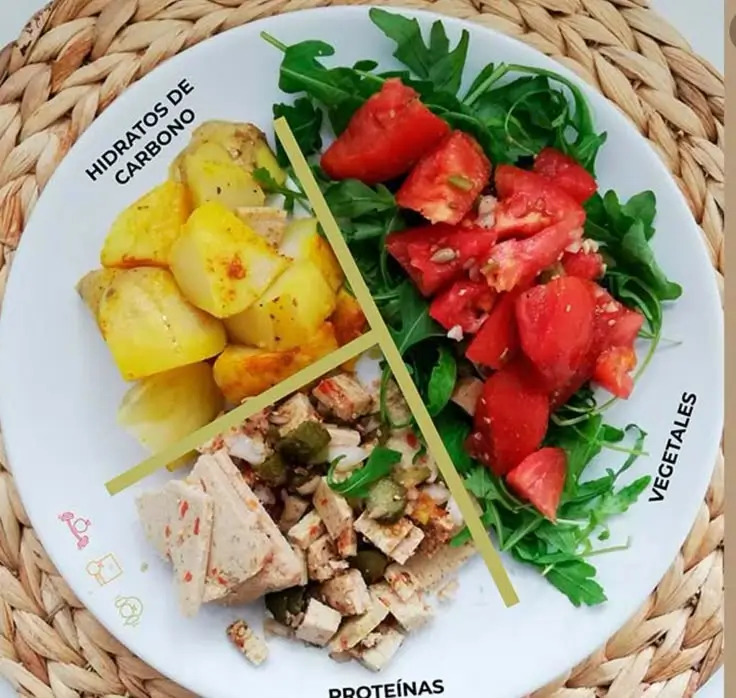
12. Avoid Late-Night Snacking
Eating late at night often leads to extra, unnecessary calories. Your body doesn’t need much energy before bed, and those snacks are more likely to be stored as fat.
Creating a habit of drinking herbal tea or brushing your teeth early can signal your body that eating time is over. If you’re truly hungry, a small handful of nuts is a better option.

13. Meal Prep for Success
When healthy meals are ready to go, you’re less likely to make unhealthy choices. Meal prepping makes it easy to stick to your goals without feeling overwhelmed.
Chopping veggies and cooking proteins ahead of time saves time during busy days. Having healthy options available means you won’t have to rely on takeout or fast food.
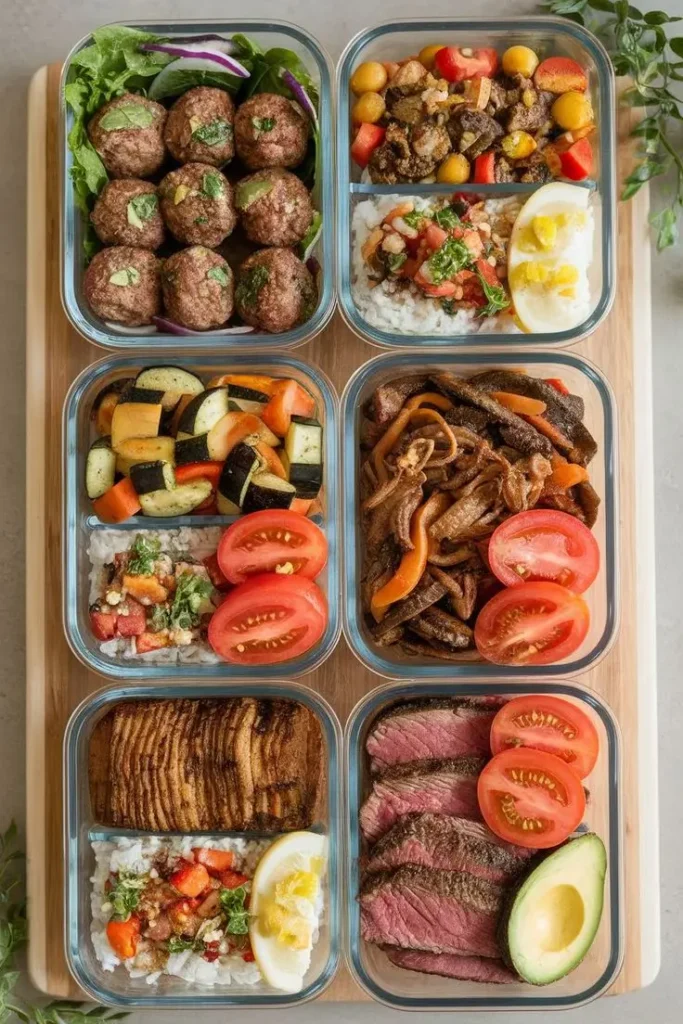
14. Don’t Rely on the Scale Alone
Weight fluctuates daily, and the number on the scale isn’t the only measure of progress. Muscle gain, water retention, and hormonal changes all impact your weight.
Tracking progress with progress photos, measuring inches, or noticing how clothes fit gives a more accurate picture. Focus on how you feel, rather than just a number.
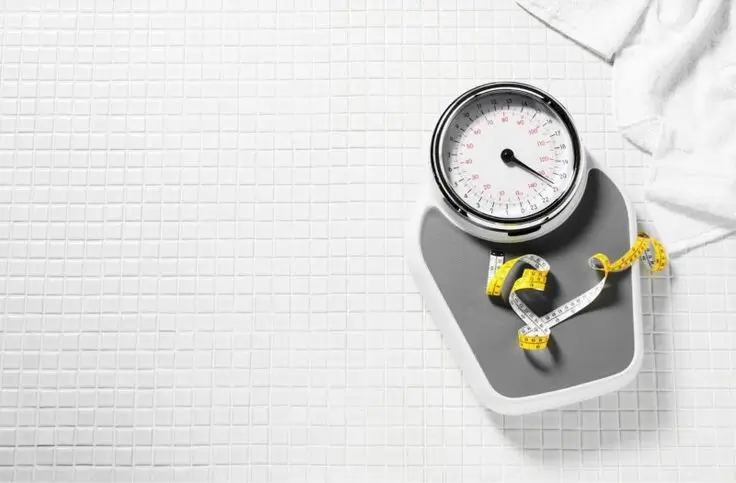
15. Eat More Fiber to Stay Full
Fiber is essential for keeping you full and supporting digestion. It slows down the absorption of sugar, preventing energy crashes and cravings.
Eating fiber-rich foods like oats, lentils, leafy greens, and chia seeds helps with portion control. A high-fiber diet naturally reduces hunger and stabilizes blood sugar levels.
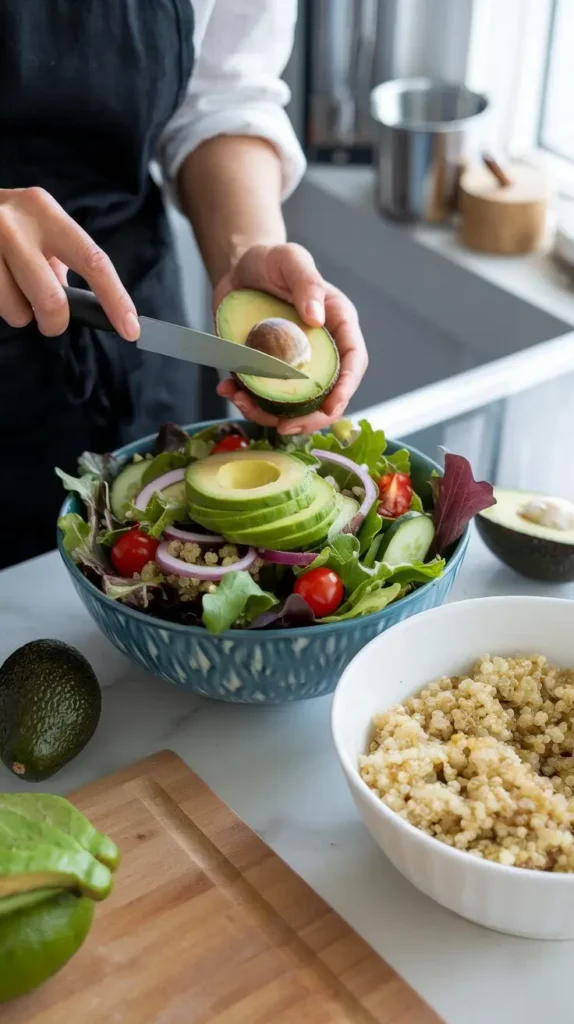
16. Allow Yourself Some Flexibility
Being too strict often leads to binging and frustration. The 80/20 rule—eating healthy 80% of the time and allowing treats 20% of the time—keeps things balanced.
Enjoying your favorite foods in moderation prevents feelings of deprivation. A small treat here and there won’t ruin your progress, but an all-or-nothing mindset might.

17. Stay Consistent, Not Perfect
The key to weight loss is consistency, not perfection. One bad meal or missed workout doesn’t ruin your progress—it’s about what you do most of the time.
Making small, sustainable changes each day leads to long-term success. Progress may be slow, but sticking with it will bring lasting results.
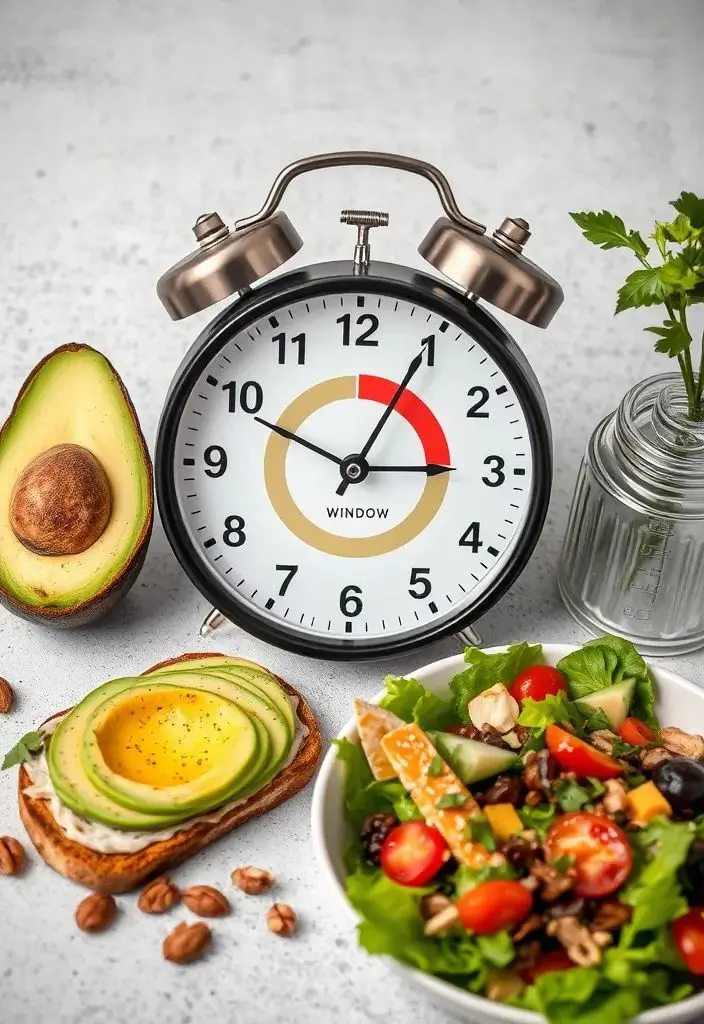
Final Thoughts
Weight loss doesn’t have to be complicated. Making small, manageable changes and staying consistent is what truly leads to success. Which tip will you try first? Let’s start this journey together—you’ve got this!










